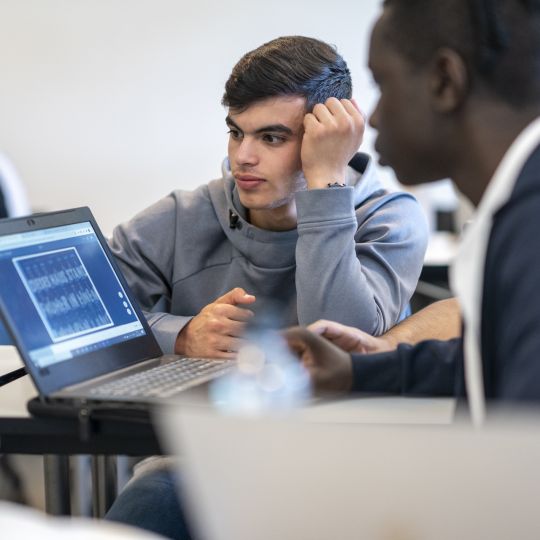IB SCHOOL


The diploma
What is the Diploma Programme?
The IB Diploma Programme is designed as an academically challenging and balanced programme of education with final examinations that prepares students, normally aged 16 to 19, for success at university and life beyond. The programme is normally taught over two years and has gained recognition and respect from the world’s leading universities.
The Diploma Programme is offered at nine schools in Denmark. These schools are geographically distributed around the regions of Denmark, so, wherever you are based, you shouldn’t be more than an hour away from an IB school.
Kolding Gymnasium has offered the IB-Diploma Programme since 2003.
The curriculum
IB Diploma Programme students study six courses at higher level or standard level. Students must choose one subject from each of groups 1 to 5, thus ensuring breadth of experience in languages, social studies, the experimental sciences and mathematics. The sixth subject may be an arts subject chosen from group 6, or the student may choose another subject from groups 1 to 5.
Programme model
The curriculum is modelled radiating out from its central teaching and learning values, through the three core elements to the six academic areas from which students choose their subjects.
The extended essay
Theory of knowledge
Theory of knowledge is a course designed to encourage each student to reflect on the nature of knowledge by critically examining different ways of knowing (perception, emotion, language and reason) and different kinds of knowledge (scientific, artistic, mathematical and historical).
Creativity, action, service
Creativity, action, service requires that students actively learn from the experience of doing real tasks beyond the classroom. Students can combine all three components or do activities related to each one of them separately. Read more on the Diploma Programme curriculum.
Assessment
Students take written examinations at the end of the programme, which are marked by external IB examiners. Students also complete assessment tasks in the school, which are either initially marked by teachers and then moderated by external moderators or sent directly to external examiners.
The diploma is awarded to students who gain at least 24 points, subject to certain minimum levels of performance across the whole programme and to satisfactory participation in the creativity, action, service requirement. The highest total that a Diploma Programme student can be awarded is 45 points. Read more on the Diploma Programme assessment process.
Quality assurance and professional development
Any school wishing to offer the Diploma Programme and attain IB World School status must first go through the authorization process. The requirements for authorization are the same for all schools, even though the process is administered slightly differently in each IB region. The process is designed to ensure schools are well prepared to implement the programme successfully.
This is a challenging programme that demands the best from both motivated students and teachers. Schools can access an extensive package of IB professional development for teachers and administrators and commit to ongoing professional development. Schools are required to participate in an ongoing process of review and development, using standards and practices that apply to all IB World Schools.
